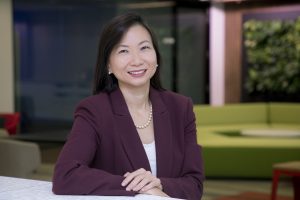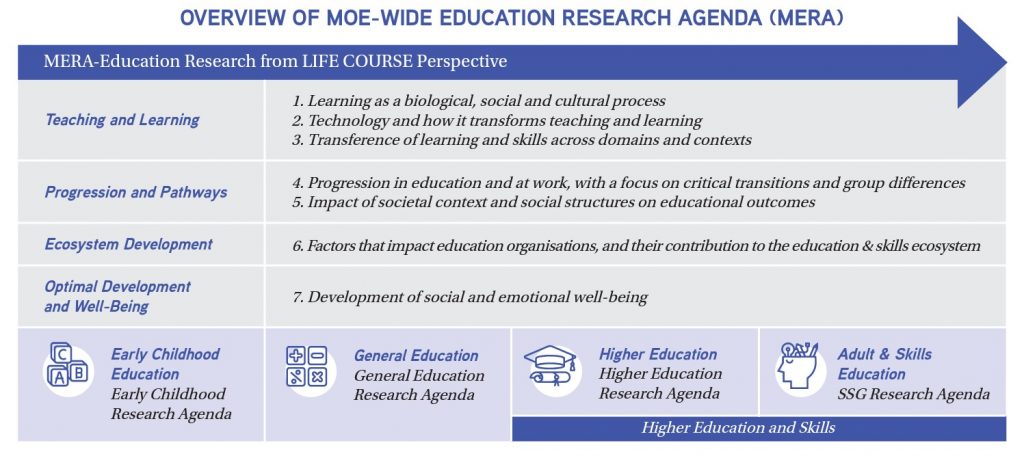Young Children’s Voices in Mathematical Problem Solving
Contributed by Dr Ho Siew Yin and Sng Wei Qin Abbie, from NTUC First Campus, for SingTeach Virtual […]
Read More
Singapore is globally recognized for its excellence in education, with students consistently scoring in international assessments. Behind this success lies a deep commitment to education research, with the Singapore government’s investment in this area to ensure that its education system remains relevant and responsive to the needs of the 21st century. Singapore’s education research agenda is driven by a vision of developing students who are critical thinkers, effective communicators, and adaptable learners, ready to thrive in a rapidly changing world. In this article, Director- General of Education Ms Liew Wei Li from the Ministry of Education, Singapore shares more about the ministry’s education research agenda.

Singapore has a unique context and our education system has many unique features. In order for us to improve teaching, learning, curriculum, systems and our education outcomes, we have to conduct our own research in Singapore. This is essential as our country relies more on our people’s capability compared to other countries that have a wider range of resources.
The Ministry of Education (MOE) has been supporting the Education Research Funding Programme (ERFP), a research funding scheme managed by NIE’s Office of Education Research, since early 2000s. The ERFP aims to improve classroom practice, enhance student outcomes, and build organizational and teacher capacities. The new 5th Tranche (2023–2028) ERFP will start in April this year and funding is open for application to all researchers from Singapore.
Education research is a wide field. MOE has developed an education research agenda (MERA) to signpost to researchers the areas of research which we consider strategic for Singapore and would best meet our students’ needs.

The seven priority research areas further scope the useful areas to focus on within the four horizontal research themes in MERA. Advancements in these areas can provide MOE with the knowledge needed to plan, curate and deliver more engaging and effective education experiences for our learners. Even though each area focuses on one aspect of education, connections can and must be drawn between their findings, in order to make real impact, in terms of new and better practices, programmes and policies that can change the life of our learners.
The ultimate aim must be to help our students learn more effectively and be healthy, thriving persons in a Singapore community. To achieve that aim, the research would have to help teachers teach better in a system that is continually better organized in anticipation of the future. Our schools will also provide joyful and meaningful learning experiences, tailored to the changing cohorts and times.
“The ultimate aim must be to help our students learn more effectively and be healthy, thriving persons in a Singapore community. To achieve that aim, the research would have to help teachers teach better in a system that is continually better organized in anticipation of the future. Our schools will also provide joyful and meaningful learning experiences, tailored to the changing cohorts and times.”
NIE is MOE’s key partner in teacher training and development, and provides deep expertise in education research. NIE plays a critical role in achieving MOE’s goals in our research agenda. MOE consults NIE and taps on its reservoir of experience and capability. Close and complementary alignment of NIE and MOE’s research agendas is therefore a natural outcome.
However, the research agenda of MOE and NIE need not completely overlap. NIE is a world-renowned school of education, internationally recognized for its quality of teacher education and education research. We look to NIE for other cutting-edge and blue-sky research that will help us chart the future of education.